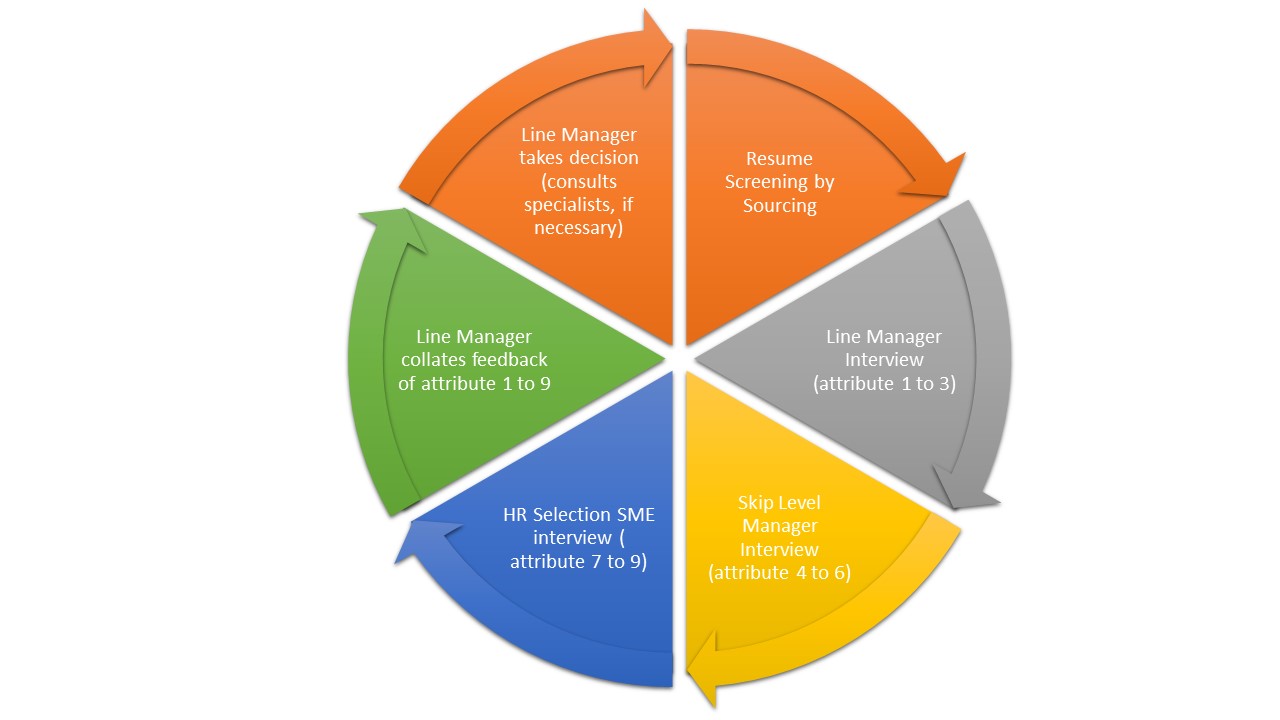Get Your Hiring Right - The Interview Circle
By Mandeep Singh
Partner – Talent & Rewards at www.hrhelpdesk.in
Hiring is one of the most important aspects of any organization. However, the individual importance for each line manager is that
hiring plays a critical role in your success and not only shapes it up in the present company, but the direction is set for your entire professional future.
Hiring decisions are by far one of the most important decisions you take as a line manager and these have a direct co-relation to your professional success and destiny.
It is important that you approach hiring with a very skill oriented mindset, what it means is that, you must understand is that hiring is not done basis feelings, the science of getting your hiring right doesn’t come with age or experience. Someone with 1 year experience can be better at gauging talent than a 20 year experienced HR professional.
Gauging from personal interviews is a science and totally depends on who has learnt it and who has mastered it with the same dedication that is required to master any other professional skill.
Therefore, as a hiring manager, when making a decision on candidates, it is perfectly fine to question the judgement (in reality it is their opinion) of the HR interviewer or your manager or of anyone else who is involved in the hiring process,
after all either of them may have got it wrong, and in the chain of interviewers, you may be the better one at gauging talent and may be the most skilled interviewing professional to make a judgement. Just by virtue of being in HR or being someone’s manager, doesn’t make them better at gauging talent.
What comes next is Conducting and structuring an interview – what I call the interview circle
Any individual to be hired into a new role needs to be measured on close to 8 to 10 attributes. These are not screening attributes, like where one has done their education, whether they have exposure to a particular technology or not. These 8 to 10 attributes which are essential for an individual to successfully execute the job for which they are being evaluated. This means in this bracket of these attributes fall all the behavioral and professional competencies that one needs to check.
An interview therefore is structured between various interviewers as a step ladder approach, each interviewer focusing in detail on a few attributes and time permitting understanding other attributes to connect the context. With this feedback taken, the next interviewer re-evaluates any open items from the previous interview and then focusses on the main attributes assigned to his or her interview and so on. Ideally this process of checking the attributes should get over in 3 interviews, post which a judgement should be made, or a decision taken if more interviews are required, in the additional interviews then they should be corroborating or re-evaluating any of the given attributes which have either not come out strongly in the interview or which are business critical for this hire and need to be rechecked just to avoid any judgmental error of the previous interviewer.
An important part to remember is that the screening team should have already checked the accuracy of data put in by the candidate, which means, have they really done what they have written in the resume, have they really got the in-depth exposure as presented in the resume.
A point to note is that whatever testing tools are being used, whether it be skill based or personality based or purely technical, the data of these should be an input to the interviewers, therefore these testing tools play the role of input in the personal interview. This helps the personal interviewer make a sound judgement on the attributes they are judging in their interview.
Taking a judgement call
Theoretically speaking, the final call on whether the candidate should be hired into a role or not is based on the decision of the line manager,
your manager and the HR practitioner and merely providing their opinion. If you keep this as the base while taking a hiring decision then you will make a sound hiring decision. Therefore, as a process, all the interviewers share their views on the attributes with the line manager, as a line manager you are supposed to understand how the candidate has shaped up and presented his or her ability on those attributes and then take a final call on whether to hire the individual or not.
The key being, all interviewers except the line manager share feedback on the attributes and do not take a call whether the candidate is fit to hire or not. Your work, your team, therefore it is your decision.
This as I said is an ideal situation, there are various permutations and combinations on which this system works, what you as a line manager have to remember, irrespective of the company process, the strongest say in the hiring decision is that of the line manager and you should be able to present your views, or question the views of others for the decision.
Hope you have a great time hiring and building a world class team for yourself.

